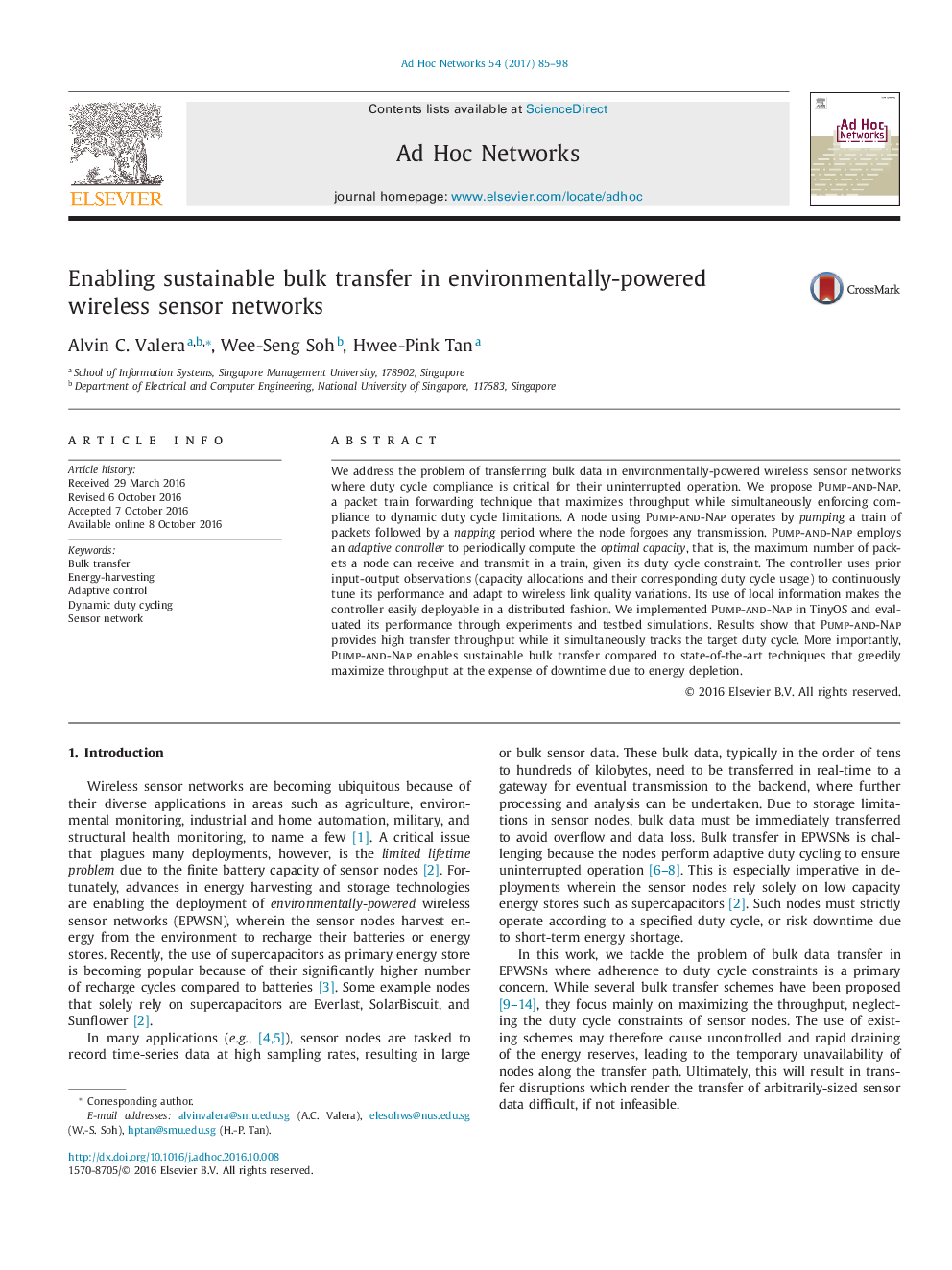ترجمه فارسی عنوان مقاله
فعال کردن انتقال بیسیم پایدار در شبکه های حسگر بی سیم با محیط زیست
عنوان انگلیسی
Enabling sustainable bulk transfer in environmentally-powered wireless sensor networks
| کد مقاله | سال انتشار | تعداد صفحات مقاله انگلیسی |
|---|---|---|
| 153938 | 2017 | 14 صفحه PDF |
منبع

Publisher : Elsevier - Science Direct (الزویر - ساینس دایرکت)
Journal : Ad Hoc Networks, Volume 54, January 2017, Pages 85-98
ترجمه کلمات کلیدی
انتقال فله، برداشت انرژی، کنترل انعطاف پذیر، دوچرخه سواری دینامیک، شبکه سنسور،
کلمات کلیدی انگلیسی
Bulk transfer; Energy-harvesting; Adaptive control; Dynamic duty cycling; Sensor network;

